
Headed for a showdown in Quebec
More than 150,000 trade unionists, their families and supporters poured into the streets of Montreal from all over Quebec to protest Premier Philippe Couillard's attack on public-sector workers and government services.
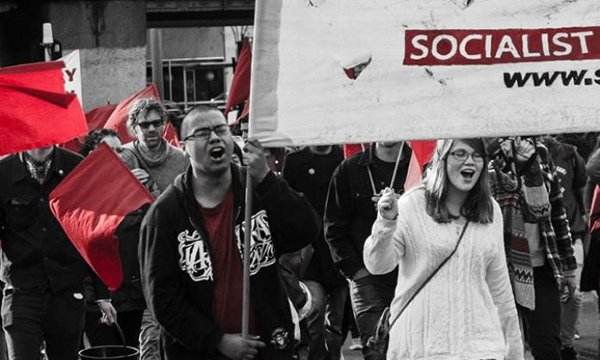
The conundrum of socialist organising
Socialists face a conundrum: increasing numbers in the West today say they identify as socialists, but revolutionary socialists remain confined to small groups with little influence, and one of the most important in the US has just dissolved.
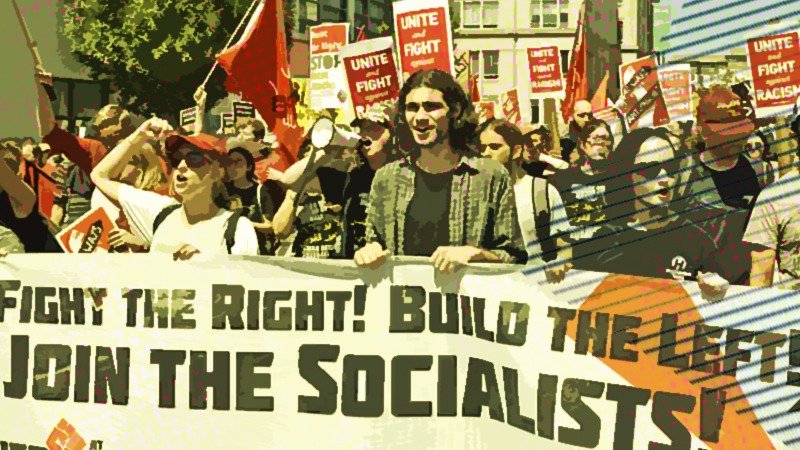
When a socialist organization fails: the ISO collapse
In 1981-82 I attended two ISO conferences where American comrades grappled with the need for a fundamental change in methods and, ultimately, leadership in the face of a radical decline in militant struggles. The result was a new leadership committed to a student focused, more propaganda oriented socialist group.
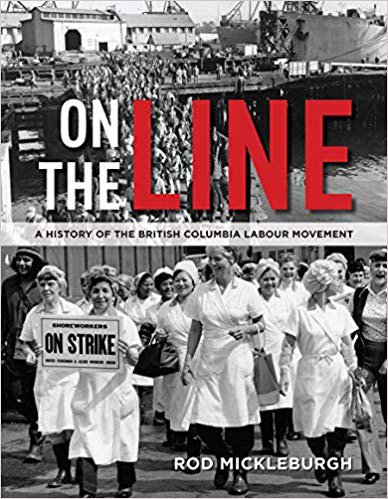
On The Line: A History of the British Columbia Labour Movement by Rod Mickleburgh (Review)
On The Line is an account of BC trade unions by the BC Labour Heritage Centre (an offshoot of the BC Federation of Labour) written by retired Vancouver Sun labour reporter Rod Mickleburgh. In a well illustrated and lively manner he tells the story of workers’ organizations and struggles, from Vancouver Island Coal miners in the 1850s to teachers’ struggles today.
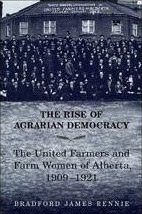
The Rise of Agrarian Democracy: The United Farmers and Farm Women of Alberta, 1909-1921 by B.J. Rennie
The Rise of Agrarian Democracy is the story of how Alberta farmers built a movement that elected the longest lived experiment in farm populist government in North America—the United Farmers of Alberta (UFA) from 1921 to 1935. B.J. Rennie’s aim is to tell and analyze how this mass mobilisation arose through the development of “a movement culture” in three steps.
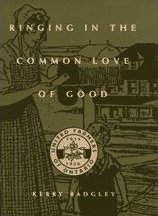
Kerry Badgley's "The United Farmers of Ontario"
In Spring 2001 thousands mobilized to protest the Free Trade Area of the Americas conference in Québec City. Following the "battle in Seattle" in 1999 and protests in Europe, a new anti-capitalist current has arisen. It is a current that includes some inspired by democratic socialism, but mostly includes a new generation inspired by some form of populism, radical liberalism open to refinement as either anarchist or socialist.
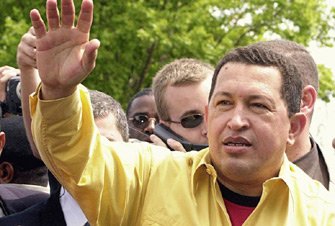
Populism: An Adjective or a Noun?
Is Populism a descriptor for someone else’s class politics, an adjective, or is it a noun, a political alternative in and for itself?
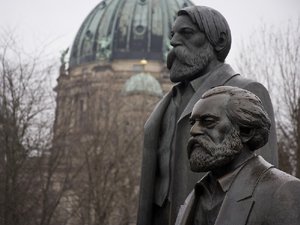
Engaging the Communist Manifesto
The Communist Manifesto is the founding statement of the revolutionary socialist tradition. In it, Engels and Marx set out a political method that emphasizes capitalism's dynamism and volatility; the need to relate to the exploited and oppressed in the struggle for socialism; to differentiate revolutionary socialists from other political alternatives; and to inspire a struggle for a socially just and fully democratic world. In the following essay, we examine how Marx and Engels saw the evolution of the Manifesto and its various uses in the struggle against capitalism in the last 160 years.
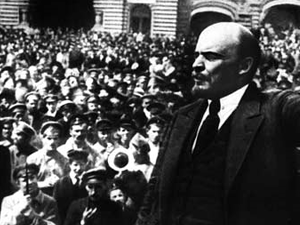
How Lenin developed his theory of the revolutionary party
The delegates were gripped with immense enthusiasm at the birth of the first workers’ republic in the history of humanity. In the words of American journalist John Reed: “by common impulse we found ourselves on our feet, mumbling together into the smooth unison of the Internationale.” Arise ye workers from your slumbers! Arise ye prisoners of want!

Towards a Class Struggle Anthropology
For Marx social class is at the centre of understanding and organizing social change. As interpreted by Lenin, the working class, organized by its politically advanced vanguard, constituted the path toward emancipation and the realization of human potential. Rosa Luxemburg emphasized—among other things—the critical power of the combined force of the working class, engaged in a general strike, in overthrowing capitalism.
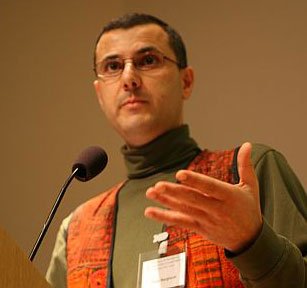
BDS: The Global Struggle for Palestinian Rights
It says something about the colonial reality of Palestinians that as a Jewish supporter of the campaign for Boycott, Divestment, and Sanctions against Israel, I am often accused by Israel supporters of “singling out” Israel – as if the idea were mine, something I picked up from left-wing kooks or “self-hating” Jews looking for an excuse to wear a kefiah.
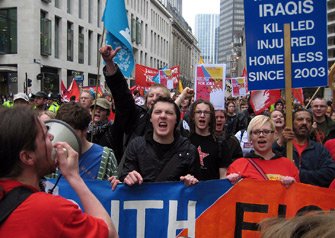
Which Way Forward for the University of Toronto General Assembly?
The University of Toronto (UofT) General Assembly, initiated primarily by a group of left-wing students at the University of Toronto, was launched on January, 2011. The first gathering of the assembly saw a hall packed with some 200 students, workers and community members. Many experienced activists were present. More importantly, however, was the participation of a significant number of youth who were recently politicized and interested in organizing.
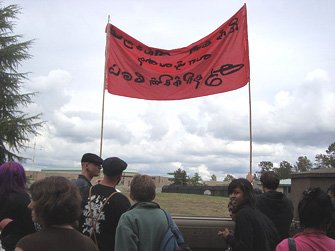
Why We Should Welcome Boatful of Tamil Refugees into Canada
From the Komagata Maru carrying 376 Punjabi passengers and the SS St. Louis travelling with 900 Jewish asylum seekers, to the boats with 600 people from China's Fujian province and the Ocean Lady that docked in B.C. last year with Tamil refugees - there is something about boatloads of migrants that triggers a national hysteria.
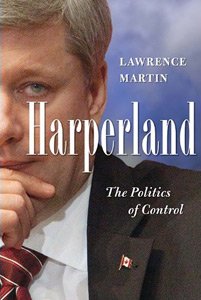
Harperland
The Harper Conservative government is in its second iteration as the national government of Canada. It is quite likely that a federal election will happen in the coming year as Harper looks to move beyond minority status to a majority government. If Lawrence Martin’s recent account of Harper is accurate (his book Harperland), then we are in deep trouble if he succeeds.
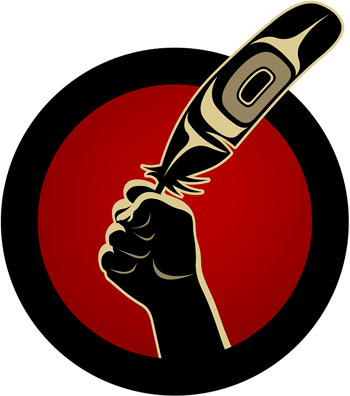
First or Last Nations?
Since the federal apology in 2008 for residential school abuse, and the holding of the first Conservative/First Nations conference in January 2012, some aboriginal leaders, like Sean Atleo, National Chief of the Assembly of First Nations, hope for a renewed relationship between aboriginal and non-aboriginal Canada – a relation that appeared to be renewed by the 1994 Royal Commission on Aboriginal Peoples Report and the Kelowna Accord of 2005 – with a promise of five billion dollars over ten years to address native poverty to create a more self sufficient future.
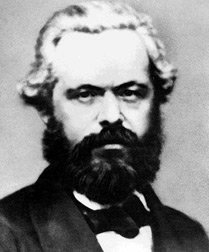
Capitalism and Alienation
It’s not often that the ideas of Karl Marx are discussed in the prestigious pages of the British Journal of Dermatology, but an article published there in January 2008 attempted to throw light not just on Marx’s state of physical health, but also on its supposed consequences for his entire worldview.

Left Debates: Fault Lines of the Global Crisis
We have entered a whole new, crisis-ridden and conflictual period in world history. The combination of George W. Bush’s disastrous occupation of Iraq and the global economic crisis has ripped apart the unipolar world order the United States attempted to construct after the Cold War.
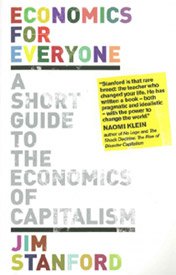
Economics for Everyone: How to Talk About Capitalism
Economics for Everyone – A Short Guide to the Economics of Capitalism, by Jim Stanford, Fernwood Publishing & Canadian Centre for Policy Alternatives.

Leon Trotsky: Life of a Revolutionary
August 2010 marked the seventieth anniversary of the assassination of Leon Trotsky at the hands of a Stalinist agent. Here we reprint an article by British Marxist Duncan Hallas on the life and legacy of Trotsky.
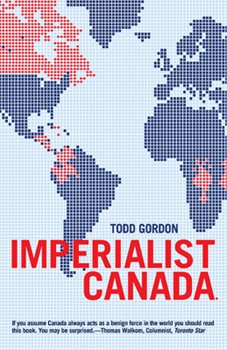
Bully Canada
Todd Gordon’s new book provides a compelling case that Canada is an imperialist country in its own right. His factual presentation of the matter will reinforce what is already a growing perception among Canadians.
